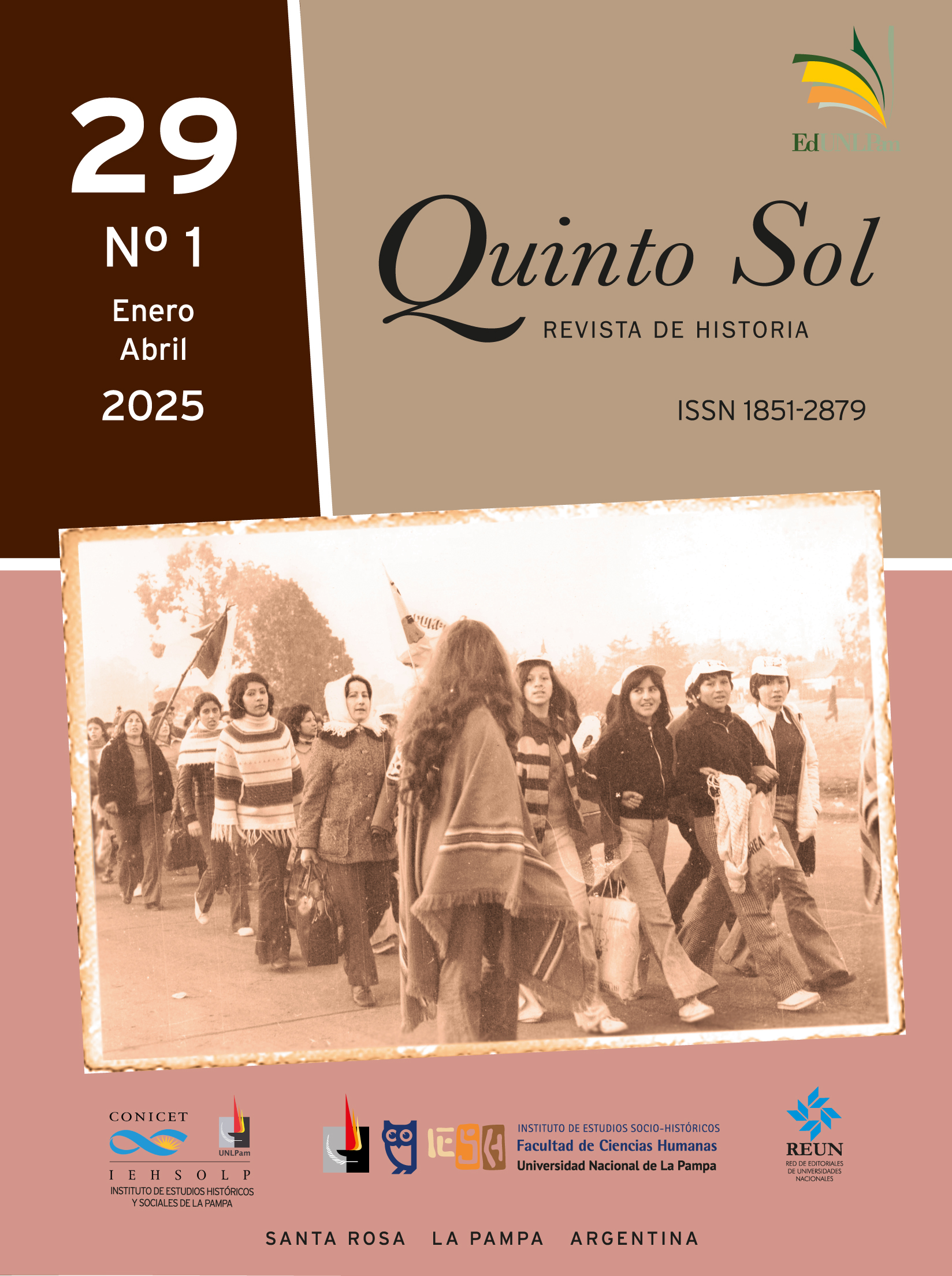Introduction: Youth, Culture, and Politics in the Recent Past
DOI:
https://doi.org/10.19137/qs.v29i1.8408Keywords:
History of Youth, Recent Past, Music, PoliticsAbstract
This dossier is made of original articles that delve into the history of youth (understood as a sociocultural category based upon age) and of young women and men (understood as cultural and political actors). Besides collaborating with the expansion of the history of youth, the articles amplify our understanding of the recent past, chiefly spanning from the 1960s to the 1980s. The articles likewise focus on different geographical scales (local, national, transnational) to account for the complexity of the sociocultural history of youth.
Downloads
References
Barr-Melej, P. (2017). Psychedelic Chile: Youth, Counterculture, and Politics on the Road to Socialism and Dictatorship. University of North Carolina Press.
Chávez, J. (2017). Poets and Prophets of the Resistance in El Salvador. Oxford University Press.
Dunn, C. (2001). Brutality Garden: Tropicalia and the Emergence of a Brazilian Counterculture. University of North Carolina Press.
Langland, V. (2013). Speaking of Flowers: Student Movements and the Making and Remembering of 1968 in Military Brazil. Duke University Press.
Luke, A. (2018). Youth and the Cuban Revolution. Lexington Books.
Markarian, V. (2013). El 68 uruguayo: entre cócteles Molotov y música beat. Universidad Nacional de Quilmes.
Pensado, J. (2013). Rebel Mexico: Student Unrest and Authoritarian Political Culture during the Long Sixties. Stanford University Press.
Zolov, E. (1999). Refried Elvis: The Rise of the Mexican Counterculture. California University Press.
Downloads
Published
Issue
Section
License
Copyright (c) 2024 Quinto Sol

This work is licensed under a Creative Commons Attribution-NonCommercial-ShareAlike 4.0 International License.
When submitting their contributions, authors must declare that they have the permission of the file or repository where the documents that are attached to the work were obtained, whatever their format (unpublished manuscripts, images, audiovisual files, etc.). Such permission authorizes their publication and reproduction, releasing the journal and its editors from any liability or claim from third parties.
Likewise, authors must adhere to the Creative Commons license called "Attribution - Non-Commercial CC BY-NC-SA", through which the author allows copying, reproducing, distributing, publicly communicating the work and generating derivative works, as long as the original author is properly quoted and acknowledged. It is not allowed, however, to use the work for commercial purposes. Authors may establish additional agreements for the non-exclusive distribution of the version of the paper published in the journal (for example, placing it in an institutional repository or publishing it in a book), with the acknowledgment of having been published first in this journal.
The publication of content in this journal does not imply any royalty or charge for taxpayers.
Quinto Sol adheres to the DORA (Declaration on Research Assessment) signed in San Francisco, California, on December 16, 2012, and to the Declaration of Mexico (Joint Declaration LATINDEX - REDALYC - CLACSO - IBICT).










4.png)
2.png)












_(2).png)


1.jpg)



1.jpg)





